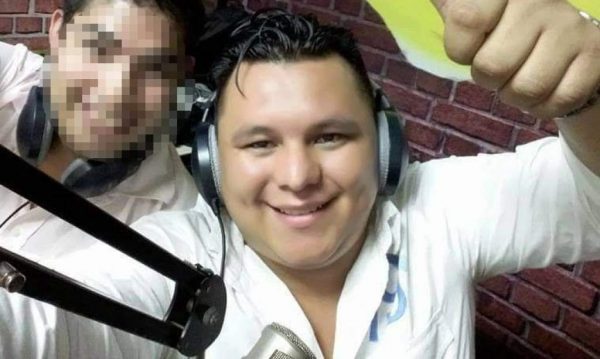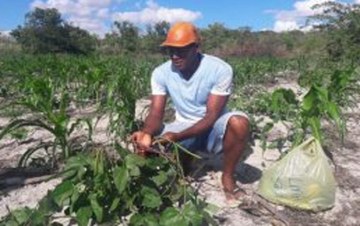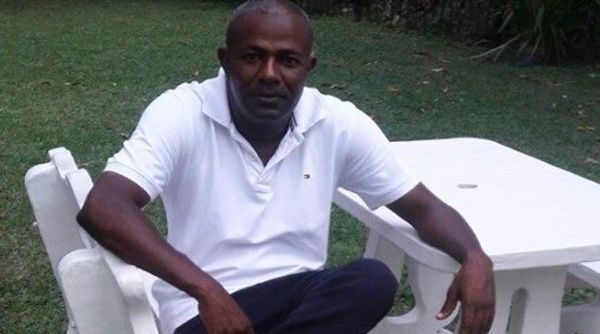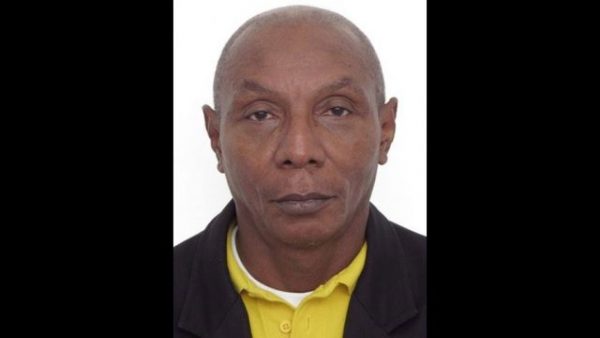Bogotá D.C. 17 de agosto de 2017 – Comunicaciones Programa Somos Defensores
¡ AGÚZATE !
Estamos felices con la paz, pero nos están matando. El movimiento de defensores de DD.HH. está en estado de alerta por el incremento significativo de asesinato de líderes sociales desde que se firmó la paz con las FARC. Las autoridades no dan resultados contundentes para proteger la vida de estos activistas, investigar efectivamente quienes son los responsables y hay una nula prevención de estos ataques. Esta oleada de muertes puede no solo desestabilizar la paz sino al país entero si no se actúa ahora mismo. Cifras del periodo enero – junio 2017 a continuación.
Vea y comparta nuestro video promocional en: https://www.youtube.com/watch?
Descargue el informe en: https://goo.gl/1hnfKK
Entre enero y junio de 2017, el Sistema de Información de Agresiones contra defensores de DD.HH. en Colombia – SIADDHH, registró un total de 335 agresiones individuales contra defensores(as) discriminados en 225 amenazas, 51 asesinatos, 32 atentados, 18 detenciones arbitrarias y 9 casos de judicialización. El incremento en agresiones contra defensores y defensoras de derechos humanos durante el primer semestre de 2017, frente al mismo periodo de 2016, fue del 6%, pasando de 314 a 335.
De estas 335 agresiones, el 76% fueron contra defensores y el 24% contra defensoras. Se mantiene la tendencia identificada en 2016 en nuestro Informe Anual 2016 “Contra las Cuerdas” acerca del incremento de agresiones contra la vida e integridad física de los defensores, manifiesta en homicidios y atentados. Desde la firma de los acuerdos de Paz en septiembre de 2016 hasta junio de 2017 han asesinado 82 defensores DD.HH y más de 50 han sido víctimas de atentados contra su vida.
Los homicidios aumentaron en un 31%. De igual manera los homicidios contra las mujeres se incrementaron con respecto a 2016, sumando 7 en este periodo. Así mismo los defensores más afectados por este delito son líderes comunales, comunitarios, campesinos y afrodescendientes de zonas rurales. Además es preocupante la desaparición previa al homicidio en varios casos registrados, así como el uso de tortura y sevicia en dichos casos como en el de José Yimer Cartagena en Córdoba a quien se le propinaron 32 puñaladas, se le arrancaron las uñas y le fue extraída la lengua o el caso de Edenis Barrera en Casanare quien fue violada, empalada con ramas y sufrió cortes en distintas partes de su cuerpo con armas cortopunzantes.
Dentro de los presuntos responsables de las 335 agresiones contabilizadas por el SIADDHH, señalamos que los paramilitares aparecen con responsabilidad supuesta en 197 casos (59%), actores desconocidos en 107 casos (32%), la Fuerza Pública en 30 casos (9%) y las guerrillas en 1 caso (0.1%)
En cuanto a la política el informe señala que a pesar de los innumerables anuncios, compromisos y disposiciones del Gobierno Nacional y entidades del Estado colombiano relacionadas con la protección y prevención de agresiones contra defensores y defensoras de derechos humanos en Colombia, las cifras son contundentes en mostrar una realidad contraria. Por ejemplo la Fiscalía General de la Nación por fin avanza pero no al ritmo necesario; menciona logros históricos pero no se compadecen con el volumen de casos que son registrados día a día. Si bien hay que reconocer avances en algunos casos (cuando en el pasado estos procesos terminaban en un archivo), la violencia contra defensores de DD.HH. es un fenómeno problemático y antiguo, que hasta ahora se está identificando por parte del Estado, pero está aún lejos de ser completamente controlado. Haría un mejor papel la Fiscalía General si produce resultados de fondo y estructurales para saber quiénes están detrás de esta violencia.
Por otra parte el informe señala como la violencia contra defensores está SOBREADVERTIDA. Al menos 5 informes de entidades del Estado, la sociedad civil y centros académicos han señalado que los líderes sociales y defensores están en riesgo. ¿Qué está haciendo el poder ejecutivo con estas advertencias? ¿Por qué no se previenen los ataques? Al Gobierno le llegó la hora de PREVENIR y dejar de prometer mesas y comités especiales de alto nivel para la protección de activistas que difícilmente funcionan.
“Agúzate” como lleva por nombre este informe, es un llamado a no perder la esperanza de que alcanzar la paz en Colombia es posible (siendo además una apuesta histórica del movimiento de DDHH), pero sin que les cueste la vida a sus activistas. La advertencia también incluye la coyuntura electoral que se avecina, pues en años anteriores se ha evidenciado mayores niveles de violencias territoriales en periodos de elecciones, y que ojalá, en esta oportunidad, la tendencia desaparezca. “Agúzate” también es un mensaje vivaz desde el movimiento social y de DDHH colombiano, dirigido a las entidades del Gobierno y Estado colombiano para que asuman sin dilación, políticas de fondo, encaminadas a generar las garantías necesarias para el ejercicio del liderazgo social y la defensa de lo DDHH. Por ejemplo, darle impulso y fuerza a la Comisión Nacional de Garantías de Seguridad, creada para diseñar la política pública relacionada con el desmonte del paramilitarismo y grupos similares, o a la Fiscalía General para que investigue a profundidad todos los casos, y no sólo aquellos que tengan “vocación de éxito”.
Defensor(a) de derechos humanos en Colombia:
“AGÚZATE” ¡ Que nos están matando ¡
Las cifras completas del Sistema de Información de Agresiones contra defensores y defensoras de derechos humanos en Colombia SIADDHH para el periodo enero-junio 2017 y otros periodos pueden ser consultados en www.somosdefensores.org
PD. En septiembre 2017 publicaremos 3 informes especiales sobre las más importantes problemáticas que enfrentan los defensores y como atacarlas. STOP WARS – Paren la Guerra contra Defensores(as)…Próximamente.
—
Carlos A. Guevara J.
Coordinador Comunicaciones, Incidencia y Sistema de Información – SIADDHH
Programa Somos Defensores-PNGPDDH
@SomosDef
Cel. (057) 3176677053
Tel.(057 1) 2814010
www.somosdefensores.org
Bogotá – Colombia



